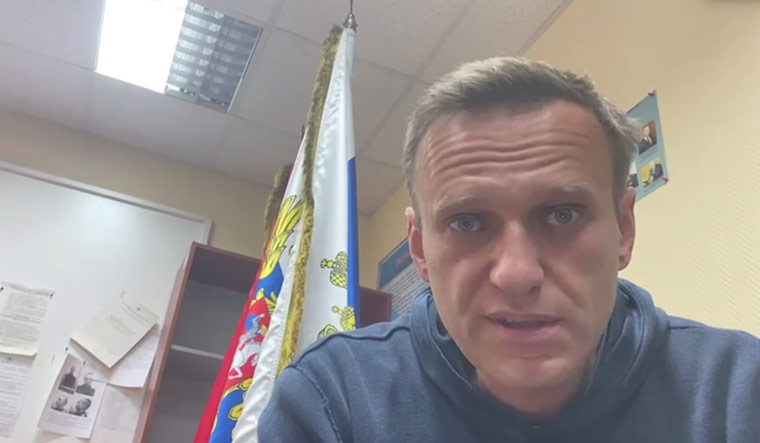Jailed Russian opposition leader Alexei Navalny has declared a hunger strike after nearly a month in a penal colony in Vladimir Oblast, considered one of the harshest prisons in the country.
Alleging that he has lost sensation in one leg and that he is being subjected to “sleep deprivation torture”, Navalny said he would go on hunger strike until his demand for a doctor to be allowed to visit him is met.
In an Instagram post, Navalny announced his situation, saying he was hardly able to walk and could not feel his right leg. He says he was being subjected to sleep deprivation torture, being woken up to eight times in a night, and says authorities are denying him pain medication.
Navalny’s internment came after he spent weeks recuperating from an attempt on his life while he was in Siberia. While travelling in Siberia, Navalny came into contact with the Novichok nerve agent and recovered only after weeks in a German hospital. Navalny alleges he was attacked on President Vladimir Putin’s behest and later committed a sting operation on an FSB agent to get him to confess to the attempt. An investigation by The Insider and Bellingcat also implicated the FSB in the attempt on Navalny's life.
Putin has rejected Navalny's allegations, laughing it off at a press conference in January and saying that if he wanted Navalny dead, it "would have been done".
Navalny is considered Putin’s foremost political opponent, and has published video material claiming to show the president’s palatial mansion in the North Caucasus region. The footage, taken by drone, sparked protests across Russia, that intensified after Navalny was arrested by Russian authorities.
Upon his return to Russia, he was immediately detained over a suspended charge of corruption. The charges relate to a 2014 embezzlement conviction that Navalny has rejected as fabricated and politically motivated and which the European Court of Human Rights has ruled to be unlawful.
Navalny was accused of violating his parole, and was ordered detained until February 15. A Moscow court later replaced his suspended sentence with a prison sentence of two and a half years in a corrective labour colony.
Protests against Navalny’s internment have been met with thousands of arrests. Navalny's arrest was condemned by governments across the world, with Amnesty International declaring him a prisoner of conscience.




